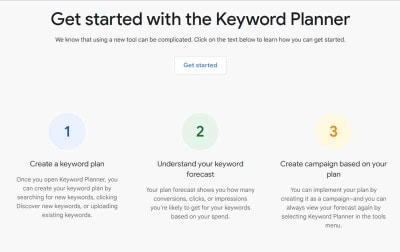Finding keywords for your website is essential to search engine optimization (SEO) and can help improve your website’s visibility in search engine results. Here are some effective methods for finding keywords:
- Brainstorming: Start by brainstorming relevant topics and terms related to your website’s content. Consider the main themes, products, or services you offer. This initial list will serve as a foundation for further research.
- Competitor Analysis: Look at your competitors’ websites and identify their target keywords. Tools like SEMrush, Ahrefs, or Moz can help you analyze the keywords your competitors are ranking for and provide insights into their SEO strategies.
- Keyword Research Tools: Use keyword research tools to generate keyword ideas and gather search volume, competition, and relevance data. Some popular tools include Google Keyword Planner, Ubersuggest, SEMrush, Ahrefs, and Moz Keyword Explorer. These tools can provide valuable keyword suggestions and metrics to help you make informed decisions.
- Long-Tail Keywords: Consider targeting long-tail keywords, more specific phrases containing three or more words. Long-tail keywords often have lower search volume but higher intent, attracting more qualified traffic. They also face less competition, increasing your chances of ranking higher in search results.
- User Intent: Understand the intent behind search queries. Determine whether users seek information, purchase, review, or compare products/services. Align your keywords with the user’s goal to optimize your website accordingly.
- Analyze Your Website: Examine your website’s content and identify relevant keywords that naturally fit your existing pages. Look for opportunities to optimize existing content by incorporating keywords where appropriate.
- Search Engine Suggestions: Use search engines like Google and Bing to your advantage. When you type a search query, these engines often provide suggestions as you type, indicating popular search terms. These suggestions can give you insights into what people are searching for.
- Consider Local SEO: If you have a local business, include location-specific keywords in your research to target users in your area. Tools like Google Trends and Google My Business can assist in finding relevant local keywords.
Related: 8 Tips to Achieve a High Google Ranking
Remember that finding keywords is not a one-time task. Continuously monitor your website’s performance, make adjustments based on data and trends, and refine your keyword strategy accordingly.
refine your keyword strategy accordingly.
Here are a few of the most popular methods:
- Google Keyword Planner: This free tool from Google allows you to research keywords and see how often they are searched for. You can also use this tool to estimate the competition for each keyword.
- Semrush: This paid tool offers a more comprehensive keyword research suite than Google Keyword Planner. Semrush can also help you track your keyword rankings and identify opportunities to improve your website’s SEO.
- Ahrefs: This is another paid tool that offers similar features to Semrush.
Related: 5 key tips to creating a successful SEO content strategy in 2023
Once you have a list of potential keywords, you need to evaluate them based on the following criteria:
- Search volume: This is the number of times a keyword is searched for each month. You want to choose keywords with high search volume so that your website has a chance to rank for them.
- Competition: This is the number of other websites also trying to rank for the same keyword. You want to choose keywords with low competition to have a better chance of ranking for them.
- Relevance: This is how closely related the keyword is to your website’s content. You want to choose keywords relevant to your website so that users are more likely to find your website when they search for those keywords.
Once you have chosen a set of keywords, you can use them to optimize your website’s content, title tags, and meta descriptions. This will help your website rank higher in search results for those keywords.
Here are a few additional tips for finding keywords for your website:
- Use long-tail keywords: Long-tail keywords are more specific and have less competition than short-tail keywords. This makes them easier to rank for.
- Use negative keywords: Negative keywords are words or phrases that you don’t want your website to rank for. For example, if you sell shoes, you might want to use the negative keyword “free” so that your website doesn’t appear when people search for “free shoes.”
- Use keyword research tools: Several keyword research tools can help you find the right keywords for your website. These tools can help you identify keywords with high search volume, low competition, and increased relevance.
By following these tips, you can find the right keywords for your website and improve your website’s ranking in search results.













.png)










Leave A Comment
You must be logged in to post a comment.